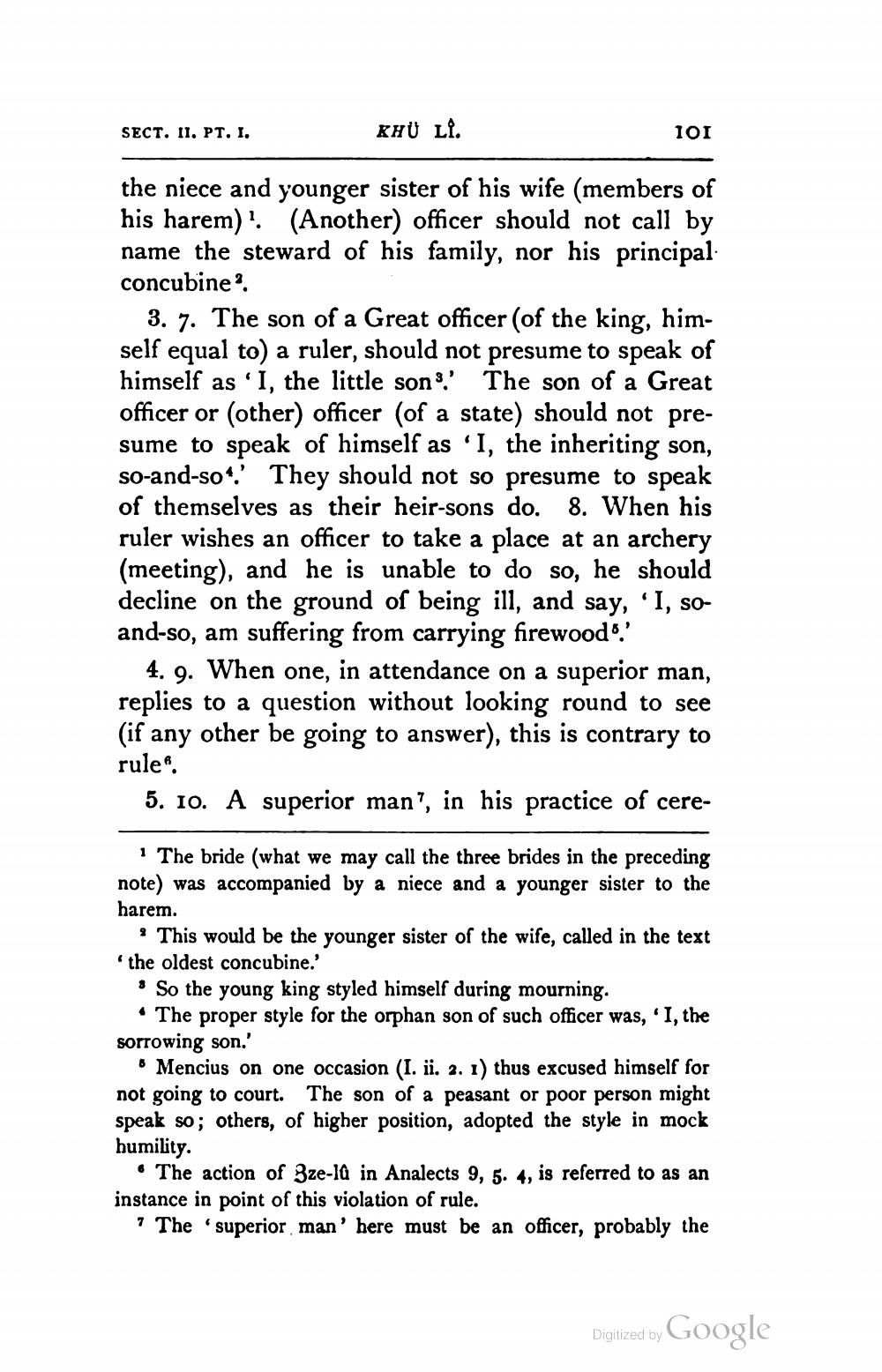________________
SECT. II, PT. I.
KHU LI.
101
the niece and younger sister of his wife (members of his harem)” (Another) officer should not call by name the steward of his family, nor his principal concubine.
3. 7. The son of a Great officer (of the king, himself equal to) a ruler, should not presume to speak of himself as 'I, the little son?' The son of a Great officer or (other) officer (of a state) should not presume to speak of himself as 'I, the inheriting son, so-and-so*.' They should not so presume to speak of themselves as their heir-sons do. 8. When his ruler wishes an officer to take a place at an archery (meeting), and he is unable to do so, he should decline on the ground of being ill, and say, 'I, soand-so, am suffering from carrying firewood.'
4. 9. When one, in attendance on a superior man, replies to a question without looking round to see (if any other be going to answer), this is contrary to rule.
5. 10. A superior man?, in his practice of cere
The bride (what we may call the three brides in the preceding note) was accompanied by a niece and a younger sister to the harem.
• This would be the younger sister of the wife, called in the text the oldest concubine.' * So the young king styled himself during mourning.
• The proper style for the orphan son of such officer was, ' I, the sorrowing son.'
• Mencius on one occasion (I. ii. 2. 1) thus excused himself for not going to court. The son of a peasant or poor person might speak so; others, of higher position, adopted the style in mock humility.
• The action of 3ze-la in Analects 9, 5. 4, is referred to as an instance in point of this violation of rule.
? The superior man' here must be an officer, probably the
Digitized by Google




